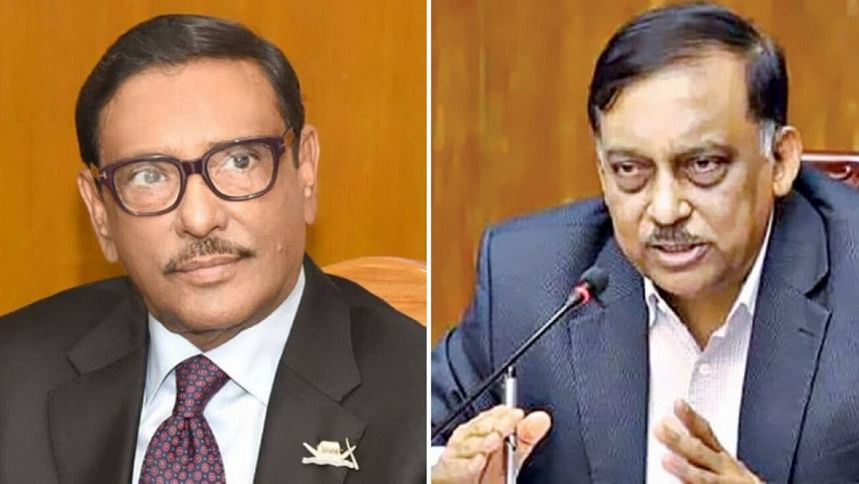ICT seeks Interpol red notices for 9 ex-ministers

The prosecution of the International Crimes Tribunal yesterday requested the home ministry to seek Interpol red notices against nine ministers and an adviser of the previous Awami League government.
Chief Prosecutor Tajul Islam disclosed the move during a views-exchange meeting with reporters at his office, saying that the individuals named in the request face multiple charges related to crimes against humanity committed during the July uprising.
The accused include Obaidul Quader, AL general secretary and former minister of road transport and bridges; Asaduzzaman Khan Kamal, former home minister; AKM Mozammel Haque, ex-minister for Liberation War affairs; Hasan Mahmud, former foreign minister; and Jahangir Kabir Nanak, ex-textiles and jute minister.
The others are Mohammad A Arafat, ex-state minister for information; Sheikh Fazle Noor Taposh, former Dhaka South City Corporation mayor and ex-AL MP; Tarique Ahmed Siddique, former defence and security adviser to ousted prime minister Sheikh Hasina; Nasrul Hamid Bipu, ex-state minister for power, energy, and mineral resources; and Mohibul Hasan Chowdhury Nowfel, former education minister.
ICT's request seeks international assistance in locating and facilitating the extradition of the accused, several of whom are believed to be residing abroad.
On November 10 last year, the ICT chief prosecutor sought an Interpol red notice against Hasina.
A red notice is a request to law enforcement worldwide to locate and provisionally arrest a person pending extradition, surrender, or similar legal action, according to the Interpol website.
AYNAGHAR, BOMBS
The chief prosecutor revealed that a massive secret detention centre, known as "Aynaghar", was discovered in Uttara following a victim's release in August last year after eight years in captivity.
Based on information from multiple survivors of enforced disappearances, a map was drawn, leading investigators to uncover hidden cells and torture chambers at the centre in the capital's Uttara, he added.
Tajul added that the cells and soundproof torture chambers were concealed by erecting walls and filling garbage, and it took several weeks to fully uncover.
He said that during the search, five live bombs connected with a wire and a timer were discovered in a bucket filled with waste like cotton and bandages. The area was immediately sealed, and the bomb disposal unit safely defused the explosives one after another after disconnecting them from the wire on January 27.
A total of 27-29 secret cells were found, including seven as small as 3x3 feet. Over 900 people are believed to have been detained there; many have returned, while others remain missing.
The authorities kept the discovery under wraps initially due to security concerns ahead of a visit by Chief Adviser Prof Muhammad Yunus. The area was later declared safe following extensive scans and security clearance.
"We documented everything but stayed silent to avoid hampering the investigation. We also filed a general diary in this regard," Tajul said.
"There is something more that I don't wish to share with you. I asked the law enforcers who were on duty there how the bombs came to be there. They said that they unaware of it," Tajul said.
"An expert said that if all five had gone off simultaneously, the building could have been destroyed. Our prosecutors were traumatised."

 For all latest news, follow The Daily Star's Google News channel.
For all latest news, follow The Daily Star's Google News channel. 



Comments